
いつでも構いませんので、マイページ上部メニュー「料金案内」よりポイント制プランをご購入下さい。
ご購入いただいた後で、月額制の解除及びポイント制への変更をメールでお知らせください。
ポイント制に変更になりますと、月額制の残りポイントを含め全てのポイントの有効期間が6ヶ月となります。


いつでも構いませんので、マイページ上部メニュー「料金案内」よりポイント制プランをご購入下さい。
ご購入いただいた後で、月額制の解除及びポイント制への変更をメールでお知らせください。
ポイント制に変更になりますと、月額制の残りポイントを含め全てのポイントの有効期間が6ヶ月となります。

月額制回数変更は、毎月更新日(お支払い日)5日前までにメールでお知らせください。
回数を上げる場合 (例:毎月8回 6,980円 ⇒ 毎月12回 8,980円)
支払い金額の20%を超えた支払金額の設定はできません。
Mini Testは、7日間で 2 回 テストを 無料でご利用いただけます。
7日間で2回テストを超える利用は有料となります。(1ポイント / 1テスト )
有料の場合、以下のように画面に「有料(1ポイント)」という注意喚起が表示されますので、テストを開始する前に必ずご確認ください。
(注意:テスト開始ボタンクリック後のキャンセルはできませんのでご了承ください。)
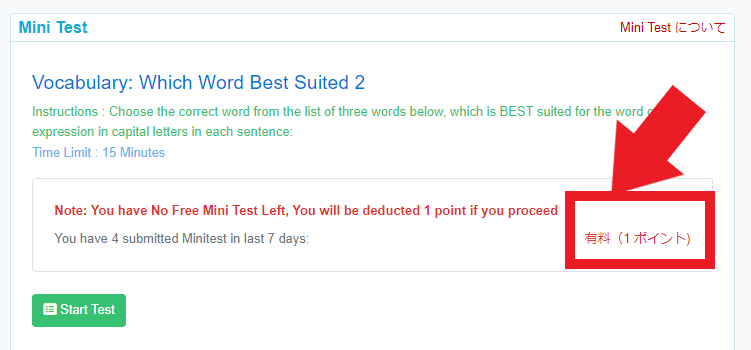
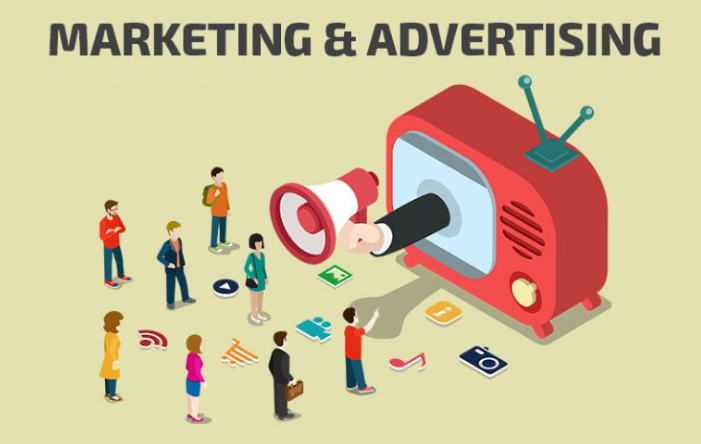
★ レッスン数は受講者のにより異なります。
マーケティング、広告代理店で働くプロフェッショナル又は就職を希望する学生が英語で信頼される実用的なコミュニケーションをクライアントや同僚と円滑に行うスキルを身につけます。
主な受講対象者:広告代理店、マーケティング担当、専門学生(中級レベル)者
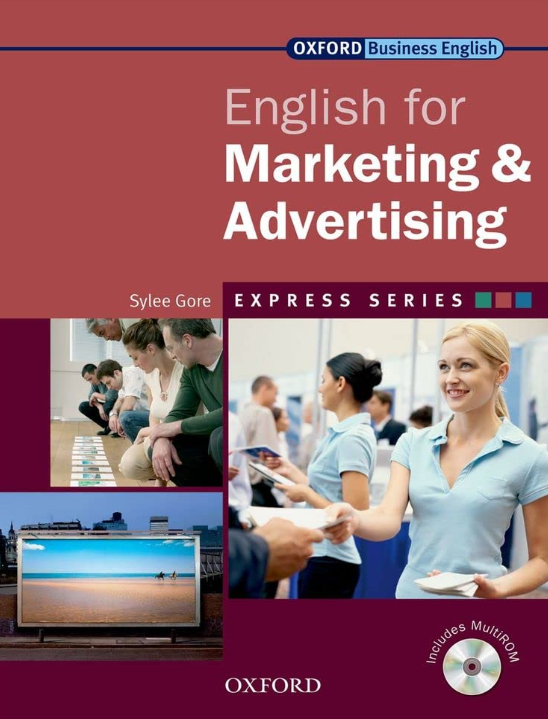
市販教材: Express Series: English for Marketing and Advertising
レッスン中は共有画面でテキストをご覧いただくことはできますが、予習復習で
必要の際は ネット通販などでお買い求めください 。
Contents
= 7 ユニット 50レッスン/25分 =
サンプル教材
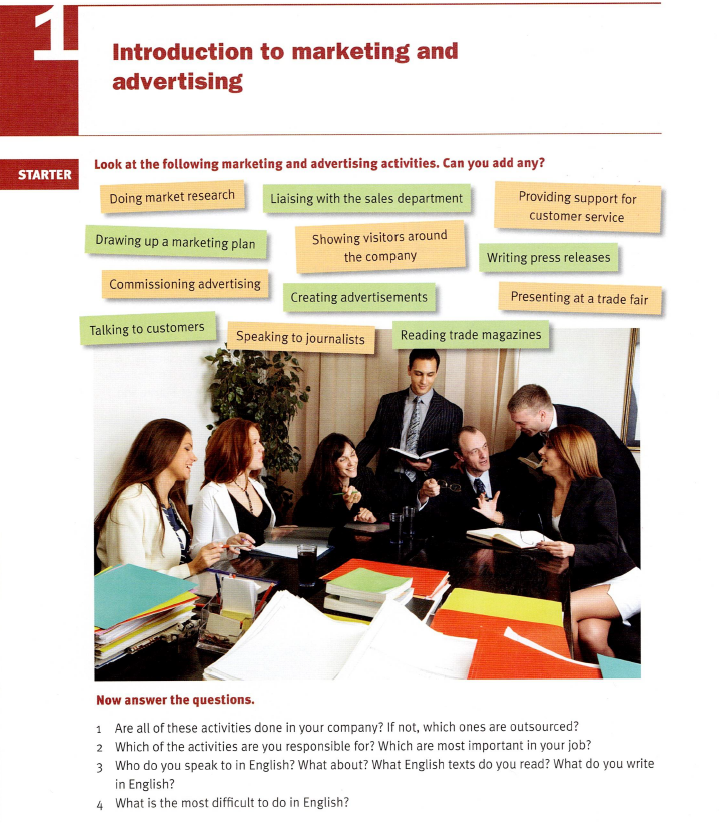
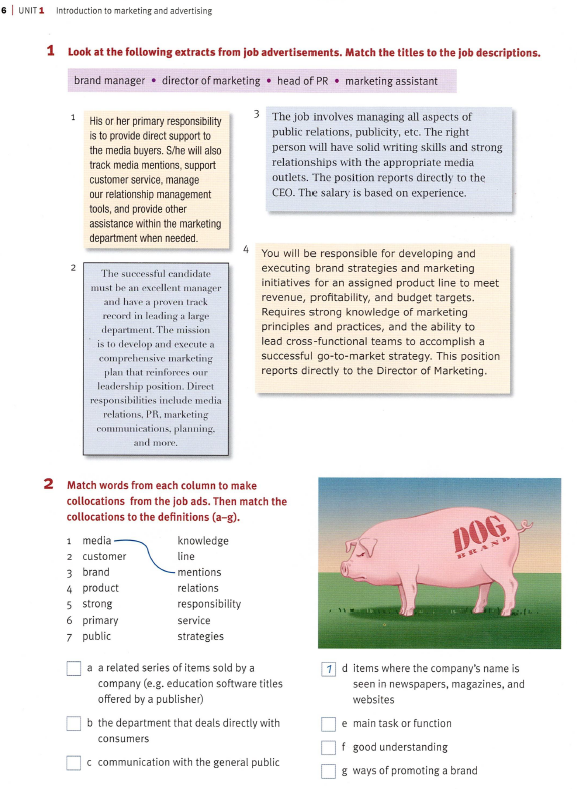
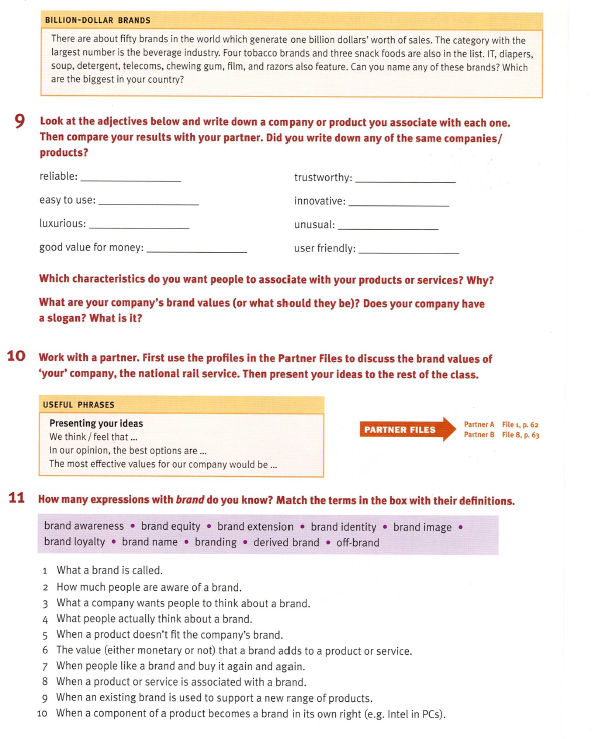
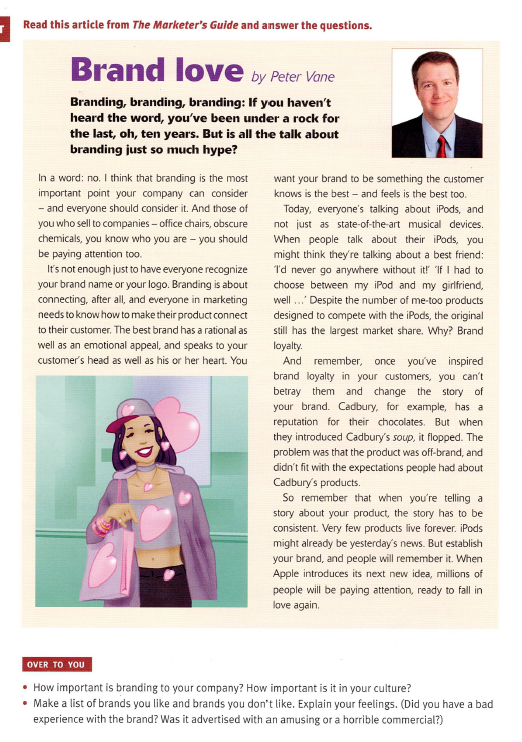
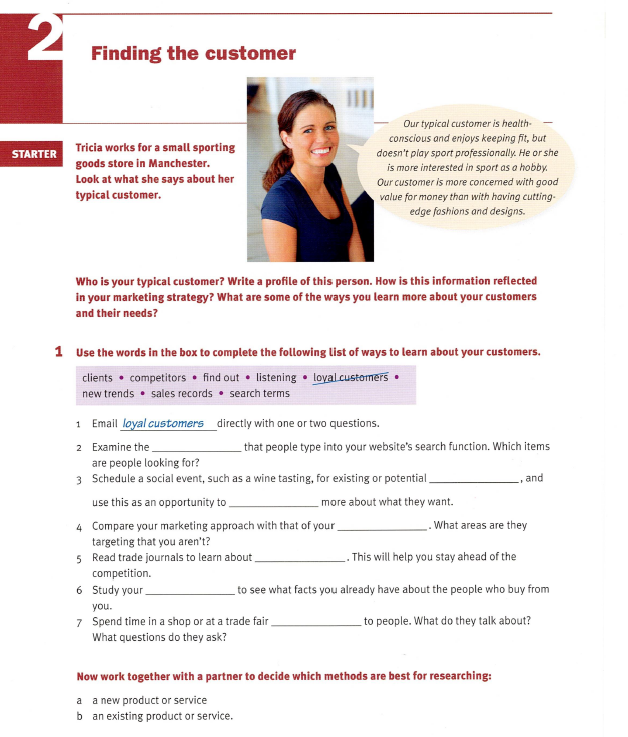

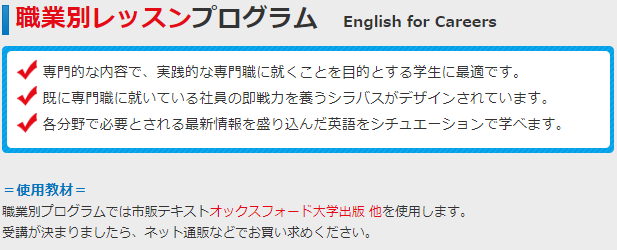
= ご注意点 =
● 専門インストラクターとの集中レッスンをお望みの方へご用意した特別コースになります。
担当インストラクターの中から講師をご予約ください。
● 全てのコースは「ポイント制プラン」又は「月額制プラン」で受講いただけます。
● ご購入時にマイページ「カスタマーサポート」までご希望レッスンをお知らせください。
(代行無しの設定にさせていただきます。)
● 受講者の希望で専門担当講師を最大週5コマまで予約確保(担任制-固定予約)致します。
English for Careers (職業別特訓コース)
レベル: 英検2級程度~
▮ Lesson Course Name: IELTS Speaking Useful Phrase Course
▮ Level: IELTS OA 3.0~7.0 , CEFR A2~, EIKEN Grade Pre-2nd or more
▮ Number of Lessons: 21 Lessons (25 minutes per lesson)
▮ Materials: We use original materials, which will be provided by the instructor during the lesson. The training involves learning phrases through example sentences, instantly creating English compositions on the spot, and practicing speaking, so no preparation is needed.
▮ Features: The lesson content allows you to not only acquire phrases useful for IELTS Speaking but also to produce sophisticated answers while using vocabulary and grammar related to topics frequently featured in the IELTS Speaking Test.
▮ Overview of the Lesson
You will learn and practice many phrases useful for the IELTS Speaking Test efficiently through this course. The course supports you in enhancing the variation of phrases used in the speaking test, aiming for natural and English-like fluent speech, and aiding you in obtaining a high score.
In this course, we don’t only memorize phrases; we incorporate vocabulary and grammar related to topics often addressed in the IELTS Speaking Test, offering lesson content that provides skills for delivering advanced answers. In the lessons, we learn phrases along with example sentences, create our own sentences (answers) using them, and train to speak them fluently.
The lesson content involves creating sentences (answers) using phrases, with reference to example sentences using phrases, and training to speak them smoothly.
▮ Main Phrases to Learn
2. Phrases to use when stating your opinion
Throughout the IELTS Speaking Test, you are asked to “state your opinion.” Relying too heavily on expressions like “I think…” will not yield a high score, so let’s prevent the overuse of the same expressions.
3. Phrases to use when stating predictions
In Parts 2 and 3, you may be asked about your future predictions. These are phrases used when talking about uncertain things in the future or things you cannot assert.
4. Phrases to use in discussions
In Part 3, you will have a discussion about the topic covered in your Part 2 speech, and you may be asked to state whether you are for or against something. We practice phrases that can be used while answering the examiner’s questions and expanding the discussion.
5. Phrases to use when comparing things
In the IELTS Speaking Test, you are also asked to explain things by comparing them. To properly compare things, be sure to understand the correct usage of grammatical “comparative” forms.
6. Phrases to describe a small difference or no difference
Try practicing with these expressions to add nuance to what you talk about and achieve flexible communication. In spoken language, such subtle nuances often play a significant role.
7. Phrases to use when asking questions back
The IELTS Speaking Test is conducted face-to-face with an examiner. The examiner’s role is not only to evaluate but also to assist the candidate in fully demonstrating their capabilities. Therefore, if you do not understand a question or cannot hear it, please do not hesitate to ask again
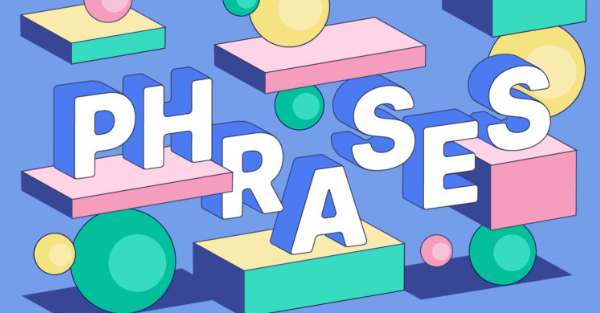
▮ レッスンコース名: IELTS Speaking Useful Phrase Course
▮ レベル : IELTS OA 3.0~7.0 , CEFR A2~, 英検準2級~
▮ レッスン数 : 21 レッスン (25分/レッスン)
▮ 教材 : オリジナル教材を使用しますが、それはレッスン中に講師から受け取る形となっております。フレーズを使用して例文を学び、その場で瞬時に英作文を作成し、スピーキングを行うトレーニングとなりますので、予習は不要です。 サンプル教材
▮ 特徴 :
IELTS Speakingで使えるフレーズを身に着けるだけでなく、IELTSスピーキングテストで頻出する話題に関する語彙や文法を使いながら高度な回答ができるレッスン内容になっています。
IELTS Speaking Mock Test コースの補完的役割が期待できます。
スコアが伸び悩んでいる方にお勧めするレッスンです。
▮ レッスンの概要
IELTSスピーキングテストで役立つ多くのフレーズを効率的に学び、練習します。このコースを通して、スピーキングテストで使用するフレーズのバリエーションを拡充し、自然で英語らしい流暢な発話を目指し、ハイスコアの獲得をサポートします。
当コースでは、ただフレーズを覚えるだけでなく、IELTSスピーキングテストで頻繁に取り上げられる話題に関する語彙や文法も取り入れ、高度な回答ができるスキルを身につけるレッスン内容を提供しています。レッスンでは、使用するフレーズを例文と共に学び、それを用いて自ら文章(回答)を作成し、流暢に話せるようにトレーニングします。
レッスン内容は、フレーズを使った例文を参考に、フレーズを使った文章(回答)を作り上げスムーズに話すトレーニングになります。
▮ 学習する主なフレーズ
パート1では、受験者自身に関する質問や日常生活に関する質問に答えます。質問自体は難しくありませんが、解答がワンパターンにならないよう注意しましょう。 個人的な経験や思い出を話す際に使えるフレーズを使い分けることで、スピーキングが豊かになり、評価もアップします。
IELTSスピーキングテストでは全体を通して「自分の意見を述べること」が求められます。”I think….”ばかりが続いてしまうとハイスコアは望めないので、同じ表現の多用を防ぎましょう。
これらの表現は、話す時に自分の意見や信念を表すのに役立つ表現です。これらを使って、あなたの意見や信念を言語化する際に多様性と正確さをもたらし、リスナー(または試験官)により明確な理解を提供できます。
パート2と3では、将来についての予想を聞かれる場合があります。未来の不確実なことについて述べる際、または断言できないことについて述べる際に使うフレーズです。
IELTS Speaking test(特にパート2と3)で予想や未来の話題について述べる際に役立つであろうフレーズと、それらに関連した例文を学びます。
パート3では、パート2のスピーチで扱ったトピックについてディスカッションをし、ある物事について賛成か反対かを尋ねられる場合があります。そこで、試験官からの質問に答えつつディスカッションを展開する際に使えるフレーズを練習します。
IELTSスピーキングテストでは、物事を比較して説明することも求められます。物事を適切に比較するためには、文法の「比較級」の正しい用法を知っておきましょう。
これらのフレーズを使うことで、あなたのスピーキングスキルはさらに洗練され、IELTSでの高スコアにつながる可能性があります
これらの表現を使って、話す内容にニュアンスを加え、柔軟なコミュニケーションができるように練習してみてください。話し言葉においては、こうした微妙なニュアンスがしばしば重要な役割を果たします。
IELTSスピーキングテストは試験官と受験者が対面で行います。試験官の役目は、評価することだけではなく、受験者が力を存分に発揮できるように手助けすることにもあります。ですから、もし質問の意味がわからなかった、あるいは聞き取れなかった場合は、遠慮せずに聞き返してみてください。
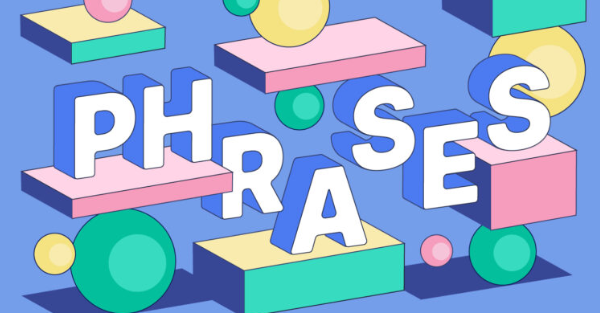
IELTS Speaking Useful Phrase Course 21
― Table of Contents ―
★ 25 minutes / lesson
★ 受講者のレベルやレッスンの進行速度によってレッスン数が変わる場合があります。
(The number of lessons may vary depending on the student’s level and the pace of the lesson)
| Lesson Number | Question Format | Number of Phrases |
| Lesson 1 | Phrases to use when talking about your own experiences | 1-10 |
| Lesson 2 | Phrases to use when talking about your own experiences | 11-20 |
| Lesson 3 | Phrases to use when stating your opinion | 1-7 |
| Lesson 4 | Phrases to use when stating your opinion | 8-14 |
| Lesson 5 | Phrases to use when stating your opinion | 15-20 |
| Lesson 6 | Phrases to use when making predictions | 1-8 |
| Lesson 7 | Phrases to use when making predictions | 9-16 |
| Lesson 8 | Phrases to use when making predictions | 17-25 |
| Lesson 9 | Phrases to use in a discussion ―In case of agreement | 1-9 |
| Lesson 10 | Phrases to use in a discussion ―In case of opposition | 1-4 |
| Lesson 11 | Phrases to use in a discussion ―In case of opposition | 5-8 |
| Lesson 12 | When unable to decide whether to agree or disagree | 1-5 |
| Lesson 13 | Phrases you can use when comparing things―Examples using comparatives | 1-7 |
| Lesson 14 | Phrases you can use when comparing things―Examples using comparatives | 8-13 |
| Lesson 15 | Examples using adverbs | 1-6 |
| Lesson 16 | Examples using adverbs | 7-12 |
| Lesson 17 | Phrases that can be used for simple comparisons | 1-6 |
| Lesson 18 | Phrases that can be used for simple comparisons | 7-12 |
| Lesson 19 | Phrases that describe small or no differences | 1-8 |
| Lesson 20 | Phrases that describe small or no differences | 9-15 |
| Lesson 21 | Phrases that explain the big difference + Phrases you can use when asking questions | 1-3 1-7 |